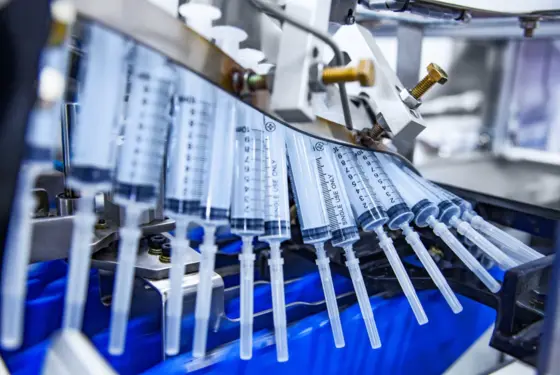Connectors have continually evolved in recent decades. The driving force behind this evolution has mainly been the automotive industry: performance, signals and data must be transmitted quickly, securely and as resistant to interference as possible – especially if cars are going to be self-driving in the future. This sets strict requirements for parts, components and production processes for complex connectors.
KRAMSKI GmbH, headquartered in Pforzheim, Germany, is a technology leader in this field. The company operates in four locations worldwide, including Sri Lanka (since 1993), the US (since 2002), and India (since 2008). With a team of 700 employees, KRAMSKI produces highly complex stamped and hybrid components, enabling its customers to gain a competitive advantage. "Our top priorities are quality and innovation. Together with partners like Kistler, we're working at the forefront of technological development," says Felix Nussbaum, Head of Sales and Marketing at KRAMSKI. In addition to cutting-edge stamping and injection molding machines, this is mainly due to their in-house tool manufacturing. Trainees at KRAMSKI frequently win awards at both the state and federal level, and often go on to have successful international careers within the company.
Every year, KRAMSKI produces around three billion parts worldwide on behalf of its customers. Important trends in the industry include digitalization and miniaturization as well as traceability all the way down to the individual part. Nussbaum continues: "In terms of connectors in particular, the continually expanding range of variants must be considered. We continuously improve our processes in line with the principles of Industry 4.0 in order to offer our customers the greatest possible quality, transparency and efficiency." The complexity of the projects should, however, not be underestimated: "Depending on the task and the work required, lead times can run as long as two years."









![Inline process monitoring for stamping [object Object]](https://kistler.cdn.celum.cloud/SAPCommerce_Document_Preview/961-745e.webp)